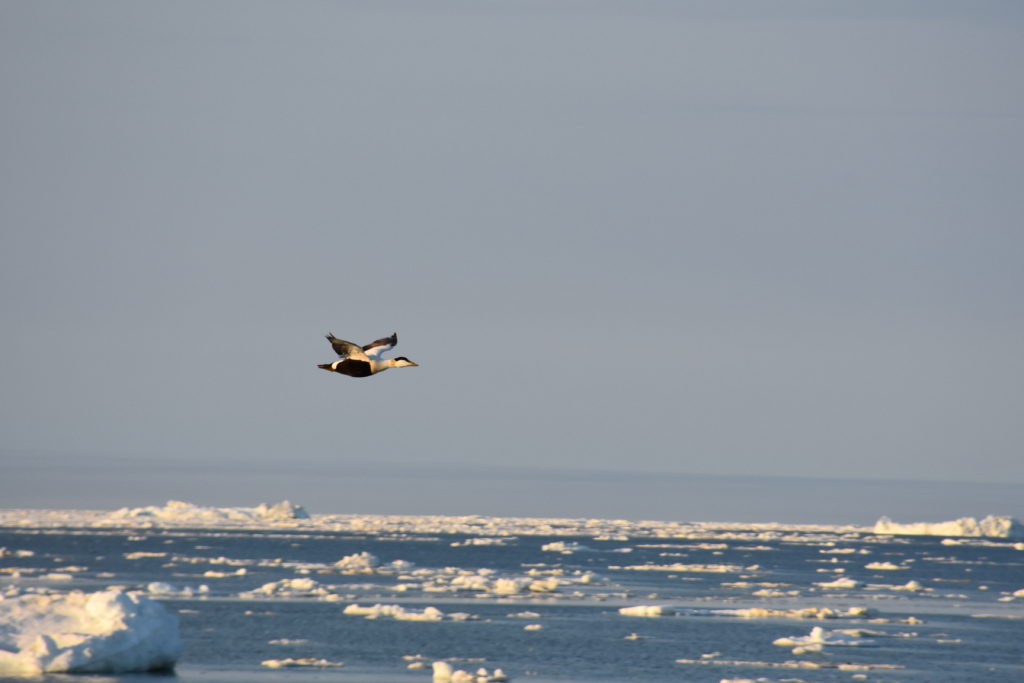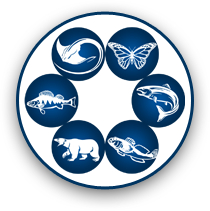The Semeniuk Lab recognizes that diversity is critical to achieving personal, academic, and research excellence that fosters leadership and societal change. Please click on the PDF link to read the Lab’s Guiding Principles to see whether you would like to become a member of our lab and participate in upholding these values. Semeniuk Laboratory Guiding Principles November 2022
Our lab is very active with a variety of different research topics and techniques for setting up new experiments, data collection, data analysis, statistical analyses, literature reviews, and data management. Our grad students often work closely with undergraduate volunteers and work study students as they work through different stages of their projects. Long-term volunteers and honor’s thesis students are often paired with a graduate student for support, and work on a side project that fits in to a larger, broad-scale work.
We are currently seeking a PhD student. Please contact Dr. Christina Semeniuk via email (semeniuk@uwindsor.ca) if you are interested in joining the lab as a volunteer, work study, honour’s thesis, graduate or post-graduate student. Please indicate your research interests and include a CV or resume.
Current Opportunities:
We are seeking one PhD student to join the Predictive Ecology Lab at the University of Windsor to work with our interdisciplinary team to explore interactions between Inuit harvesters, seabirds, and climate in Kinngait, Nunavut, from a blended ecological and social perspective. Food security is a significant socio-economic challenge in Inuit communities yet central to Inuit culture and wellbeing. Seabirds, such as eider ducks, are harvested widely by coastal Inuit communities for meat, eggs and feather down. However, climate warming is greatest in the Arctic and impacting the accessibility of game to Inuit harvesters. Our goal is to work with the Kinngait community to identify potential approaches to maintain eider resources in face of costs, risks, and benefits while accounting for the growing uncertainties created by climate change. In particular, the PhD position will gather Inuit Qaujimajatuqangit (IQ) and interweave this knowledge with eider ecological surveys to explore how climate change and polar bears are affecting eider abundance and distribution.
Common Eider drake flying across the bay. Photo Credit: Evan Richardson

Potential Research Questions
· What are the long-term eider abundance trends and causes of redistribution in Hudson Strait?
· Where are eiders projected to be under increasing climate change and polar-bear predation?
· How have eider-bear interactions changed over time?
This is a great opportunity to work with and learn from researchers at the University of Windsor, Environment and Climate Change Canada and Carleton University. The student will work with local Inuit project partners, as well as with territorial and federal organizations involved in seabird research and management. The student will be exposed to interdisciplinary approaches including quantitative and qualitative natural and social sciences research and will actively engage in community-based interviews, participatory mapping, and integrative modelling.
Experience Required
We are seeking self-motivated candidates with interpersonal skills to work in partnership with Nunavut communities. Interested applicant should have an undergraduate and Master’s degree in biology, environmental sciences or studies, social sciences, natural resource management, Indigenous studies, or related field. Students with keen interest in interdisciplinary research/methods such as GIS, mixed- methods, and joint modelling approaches are encouraged to apply. Applicants must be willing to travel and spend time in northern communities. Applicants must have strong communication and interpersonal skills, be highly organized, and the ability to manage multiple tasks. Candidates must be willing and committed to co-developing projects with local and regional partners, supporting Inuit research priorities, and enhancing Inuit self-determination in research. Above all, we are seeking applicants who are kind, and desire to help make the world a better place for nature and people.
To Apply
1. Maximum one-page cover letter/statement of interest describing your fit and interest in this position.
2. CV demonstrating relevant experience and background.
3. Unofficial transcript.
4. Names/contact information for two references.
All documents must be submitted to semeniuk@uwindsor.ca.
If you have any questions, please do not hesitate to contact Christina. Potential start date: Fall 2025 with summer 2025 community work.
Note that we are only accepting Canadian students at this time.
The PhD student would be part of the Integrative Biology Department, University of Windsor, and co-
supervised by Christina Semeniuk (UWindsor) and Dominique Henri (Environment and Climate Change Canada). We strongly encourage applications from Nunavut residents. Applications are also welcome from other students with relevant interests and experience in northern research.
Position will remain open until filled.












